Last April, Lizelle Herrera was arrested for having an abortion at her home in Texas. A few months earlier, Brittney Poolaw was sentenced to four years in prison for “involuntary manslaughter” after she miscarried in Oklahoma.
Chelsea Becker, who had a drug addiction, was in jail in California for 16 months after suffering a stillbirth.
LOOK: A devastating image of Trump: the explosive testimony of a former White House aide on the assault on Capitol Hill
And in 2015, Purvi Patel was sentenced to 20 years jailed in Indiana for “feticide” after seeking medical care after a miscarriage…
They are not the only ones.
Although news about cases of this type are frequent in countries like El Salvador or Guatemala, it is little known that the United States is one of the nations in the region where more women go to jail for causes associated with their pregnancies.
According to data from National Advocates of Pregnant Women (NAPW), a women’s legal defense organization, more than 1,700 women have been imprisoned or have been arrested and prosecuted for some “crime” associated with their pregnancy since 1973, when abortion was legalized in the country.
“In the United States there are literally hundreds of women who have been arrested and accused of crimes against their fetuses. It is not something that happens only in Central America,” he tells BBC Mundo Grace Howardan expert in the criminalization of pregnancy at San José State University, in California.
Dana Sussmannacting director of NAPW, tells BBC Mundo that, according to the statistics of her organization, if between 1973 and 2000 some 400 cases of women prosecuted for these causes were reported, in less than two decades that figure has increased. triplicate.
“In the last 15 years, according to the most recent data we have, some 1,300 cases have been reported. This shows that the positions towards the criminalization of pregnancy have radicalized notably in this period in the United States and hence our concern about what can happen from now on,” he says.
Last week, the Supreme Court struck down Roe vs. Wadethe transcendental decision that legalized abortion almost 50 years ago and that served as protection so that many of the women tried for these reasons were later released.
From now on, the interruption of pregnancy will no longer be seen as a constitutional right and the limits they wish to impose on pregnant women will depend on each state.
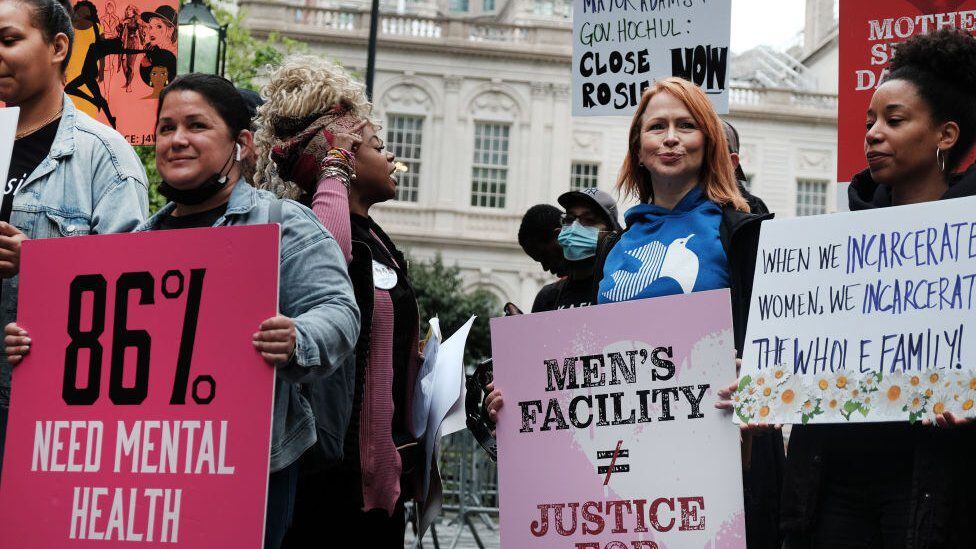
“If with Roe v. Wade we saw this extraordinarily high number of cases of women indicted for their pregnancies, what we expect is that this will multiply and that increasingly restrictive laws will be passed to criminalize pregnant women,” Sussman warns.
Although many states have said, for now, that they will only penalize doctors and clinics that perform abortions, legal experts fear that this measure will only be the beginning.
Last year, the National Association of Criminal Defense Lawyers of the USA published a report in which it pointed out that the prohibition of abortion in numerous states could lead to “overcriminalization” and “mass incarceration” in much of the country, not only of women, but of anyone who attends, Advise or offer termination of pregnancy.
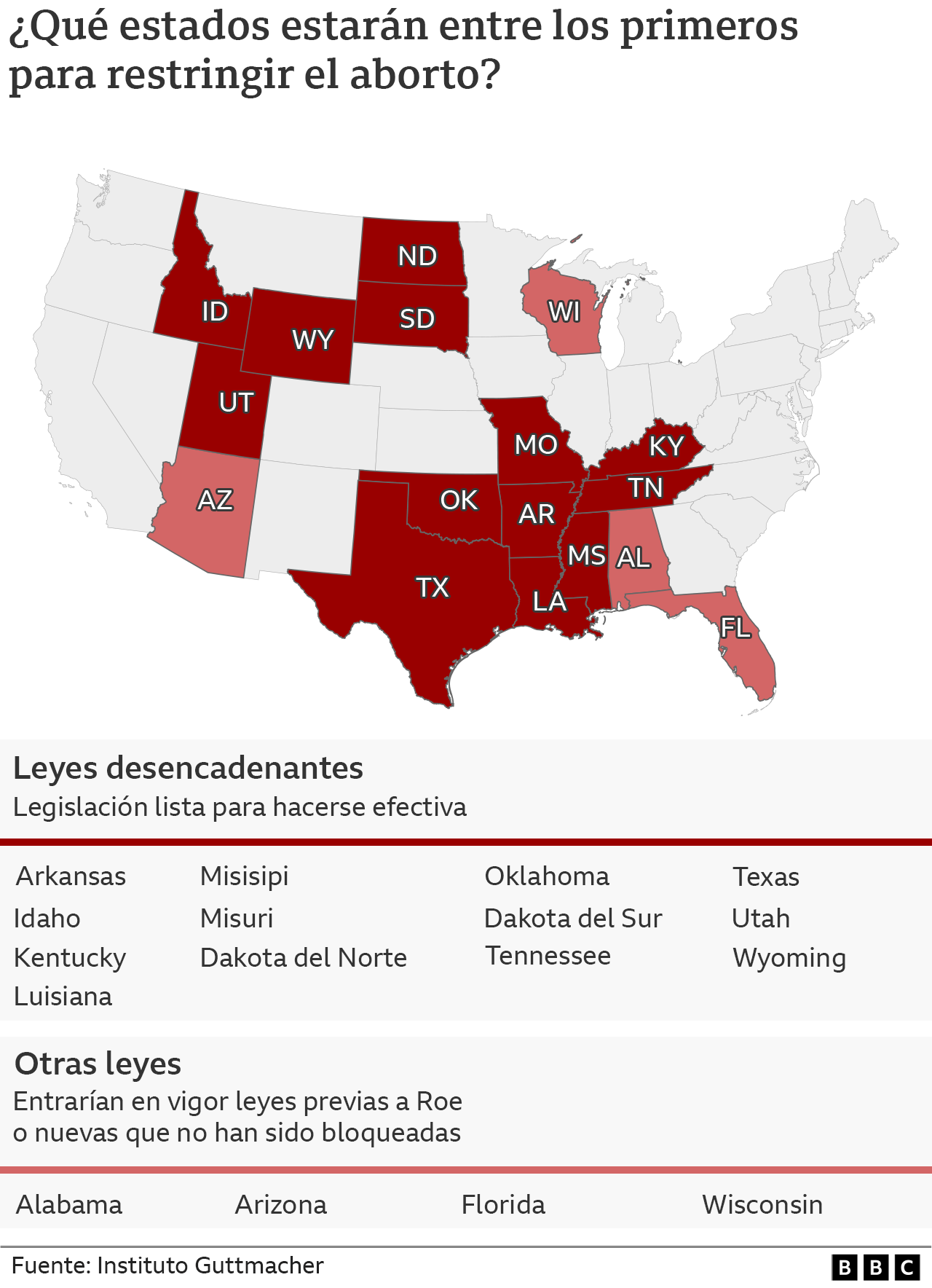
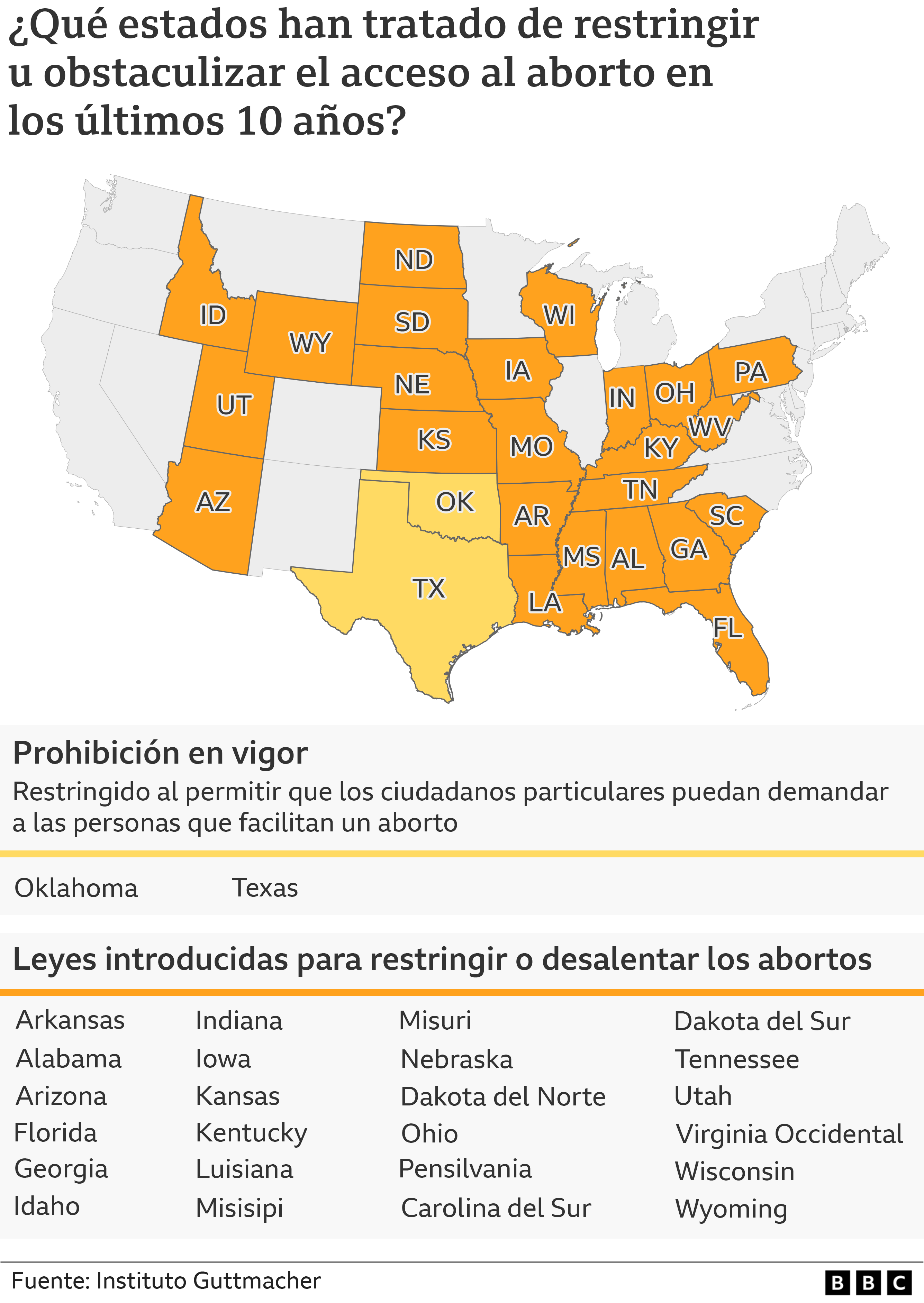
New penalties
The case shocked the United States: in 2019 Adora Perez was convicted and spent more than three years behind bars in California (she was released last March) for the “murder of a human fetus”: she had given birth to a stillborn child whose autopsy showed traces of methamphetamine (although there was no evidence that this cause fetal death).
A few years earlier, in Indiana, Bei Bei Shuai, a Chinese immigrant with a history of depression, was also charged with “murder” of her unborn child, after she alone survived a rat poison suicide attempt while pregnant. She spent 435 days in jail.
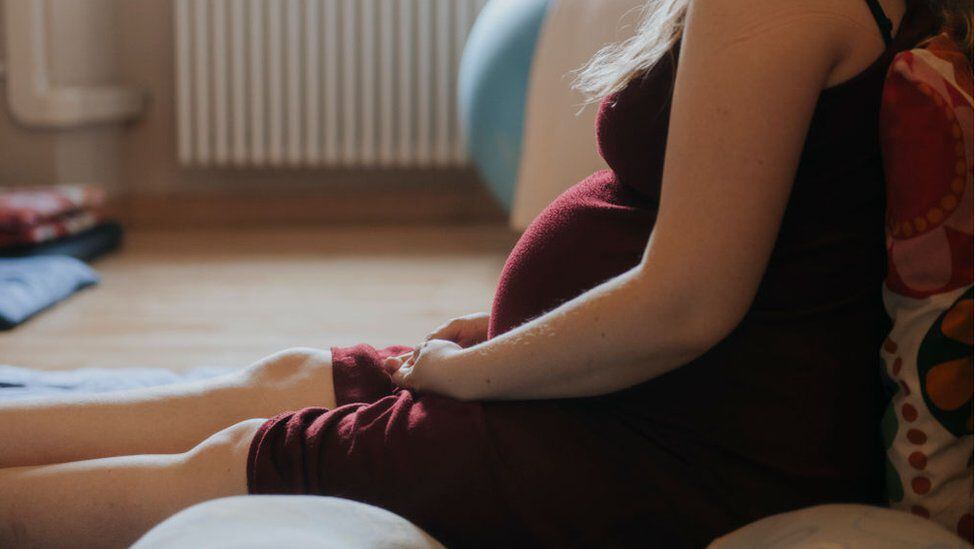
According to data from the Guttmacher Institute, women in the US can be penalized for the use of prohibited substances during their pregnancy in 23 states and, in more than half of the country, health professionals must report pregnant women suspected of drug use as “child abuse”.
The American Medical Association ensures that the damage to the fetus caused by drug use can vary from one substance to another and that in no case should it be considered child abuse.
“Drug addiction is a treatable disease rather than criminal activity,” it says on its website.
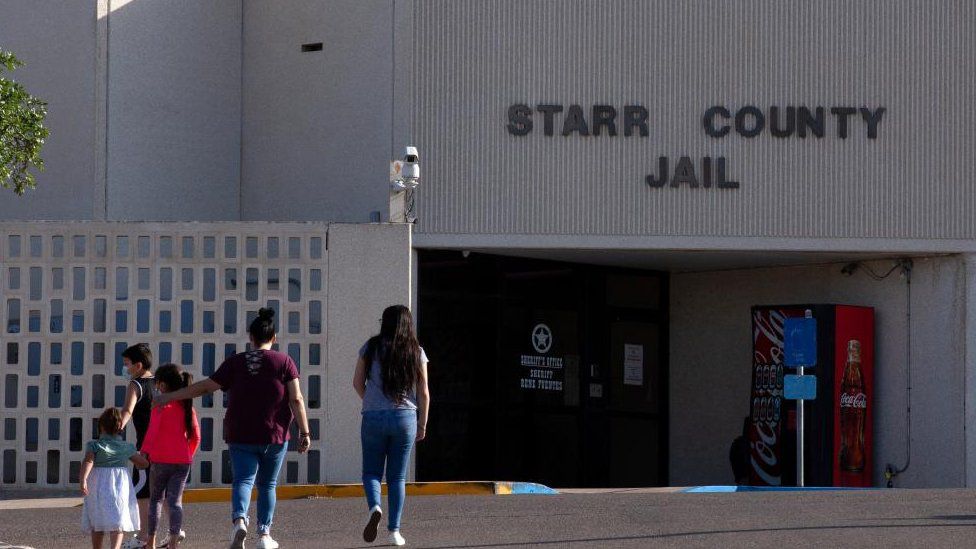
Sussman assures that although a large part of the cases of women imprisoned in recent years was due to the consumption of prohibited substances during their pregnancy, other groups of arrests “show a road map of what we can expect from now on”.
“We have worked on cases in which women have not worn their seat belts and allegedly have driven recklessly causing harm to their fetus. They fall down stairs, lose their belly and go to jail. And even a case of a woman that she was in a fight and was shot in the stomach and charged with involuntary manslaughter for exposing herself ‘to a dangerous situation,'” she says.
Howard explains that many of these arrests showed a contradictory facet of law enforcement in the United States.
“Until now, a person could legally and intentionally terminate a pregnancy in some places, at the mercy of Roe v Wade, but was penalized for inadvertently harming a pregnancy. I mean, you could legally abort, but you could go to jail for a spontaneous abortion or suffering a stillbirth. That’s how contradictory it was, “he says.
The academic explains, however, that many states were also limiting the options in which pregnant women could have abortions and criminalizing the rest.
“Laws were imposed on what types of abortions are legal, where they can be performed and up to what point in the pregnancy. So, there are states where if you have an abortion at home using pills or plants you can go to jail and if you do it after certain stage, too,” he recalls.
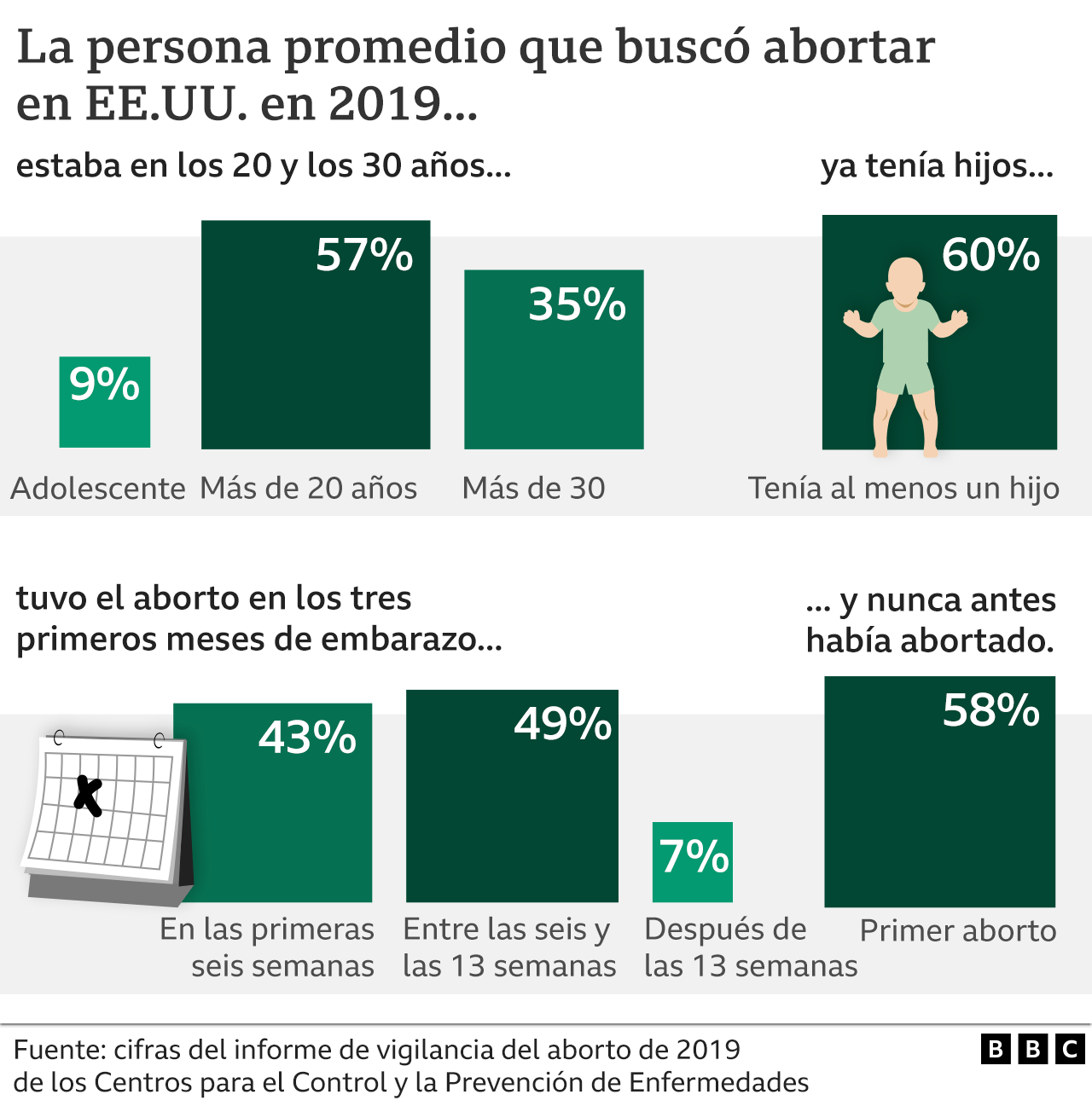
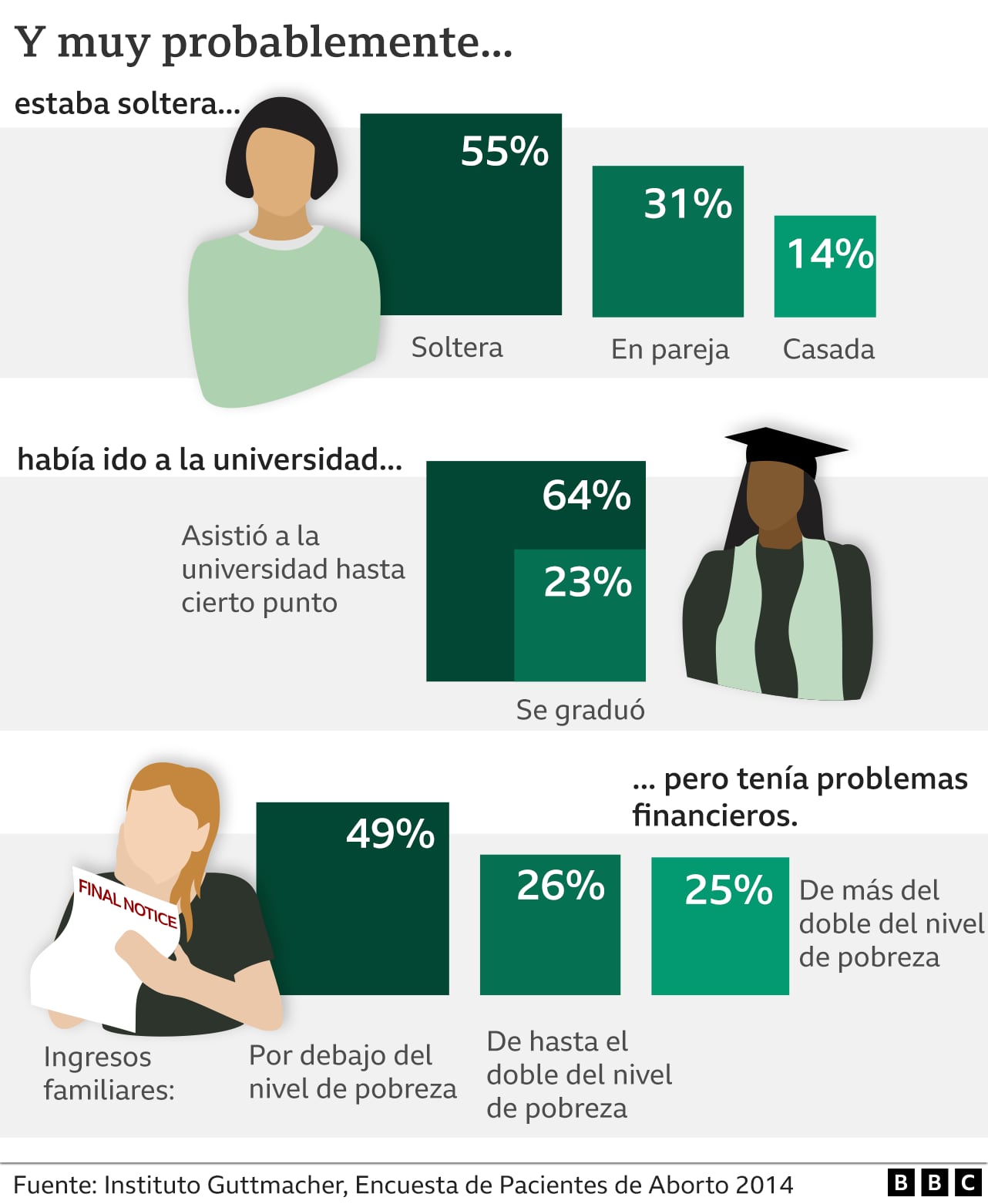
behind the laws
The studies carried out by Sussman and Howard show that poor women and, mainly, black women, are among those with the highest representation among those convicted since abortion was decriminalized in the country.
A few years ago, a Tennessee woman was jailed for attempting an abortion with a clothes hanger, while a Mexican immigrant farmworker in South Carolina was convicted of using misoprostol, an abortion medication sent to her by her sister from Mexico.
“We see a disproportionate pattern of black, poor, rural women and women drug users. I think the important thing here is to recognize how this is an extension of a more complex phenomenon of social exclusion and evidence of how the police system and the The US criminal legal system is used more harshly within certain communities and races than others,” says Sussman.
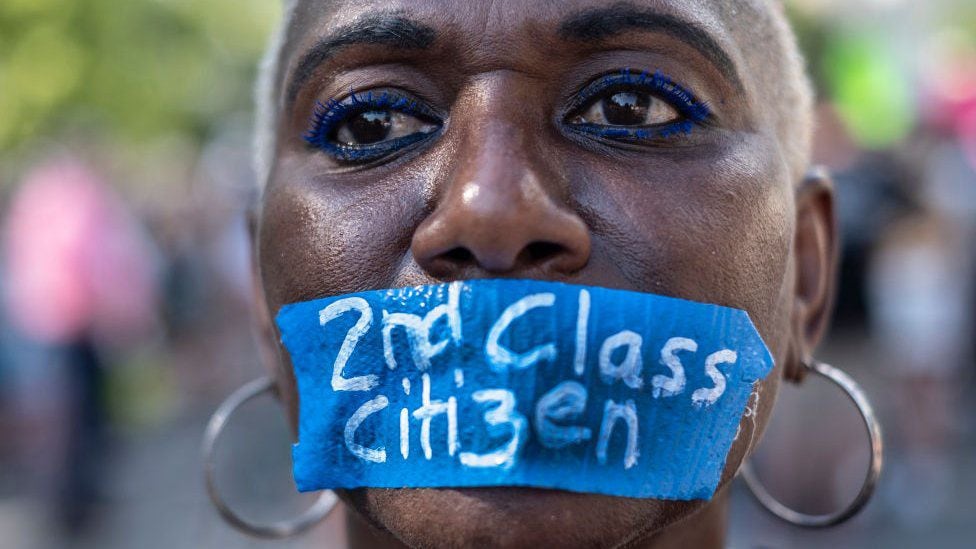
However, the lawyer explains that in these cases, the US justice used different categories of criminal law to charge pregnant women who were not directly linked to abortion.
“These are existing laws that were never intended to be applied in the context of pregnancy, but prosecutors have tried to reapply it because linking it to pregnancy could run into Roe v Wade,” he says.
“In the context of spontaneous abortion, for example, we have seen cases in which a pregnant woman is accused of involuntary manslaughter. In other words, it was not about using an anti-abortion law, but about using another existing law, like this one that tackles the negligent murder of another human being, to convict her,” he explains.
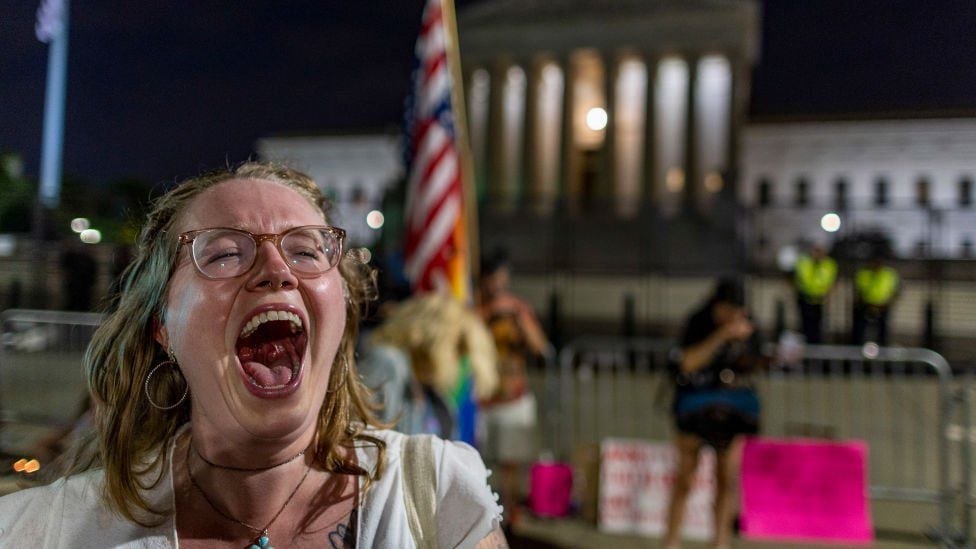
Howard warns that from now on, “we are facing a scenario in which many women will be investigated for having spontaneous abortions and will have to prove that it was not intentional or they could face up to 20 years in prison.”
Data from the American College of Obstetricians and Gynecologists indicate that at least 10% of pregnancies end in spontaneous abortions, although the figure may be much higher due to people suffering from it without knowing it.
According to Sussman, behind the cases of the past and the possible criminalization of women from now on, the dispute over the issue of “fetal personality” will be a central part, the conservative moral-religious conception that considers an embryo or a fetus as a person with rights (as if an egg were the same as a chicken).
The expert assures that the anti-abortion movement in the US has been very successful in normalizing that as “a legal concept and as a type of cultural concept recognized by society”, to the point that at least 38 states have a type of so-called “fetal aggression” laws.
Most were approved in 2004 after the murder at the hands of her husband of a pregnant woman (Laci Peterson) and sought to protect women from assaults during pregnancy.
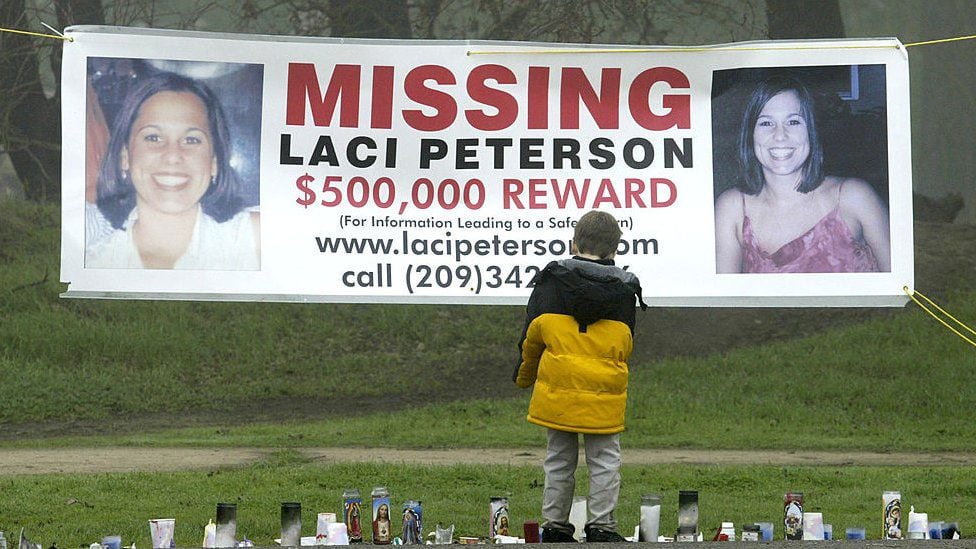
However, some laws have been so vague that they have led prosecutors to charge women for behavior they believe may have contributed to a miscarriage or stillbirth.
“One important thing to remember is that gnaws Y Caseythe two fundamental decisions on abortion, not only establish that it is a fundamental right under the Constitution, but also reject the concept of fetal personhood,” says Sussman.
“From now on I am convinced that we will see more laws that will try to promote this idea and, with it, will make the criminalization of pregnancy disproportionately greater. It is a scenario that we were already seeing in which pregnant people have fewer rights and are more vulnerable legally due to their simple condition of being pregnant,” she adds.
Source: Elcomercio
I, Ronald Payne, am a journalist and author who dedicated his life to telling the stories that need to be said. I have over 7 years of experience as a reporter and editor, covering everything from politics to business to crime.

:quality(75)/cloudfront-us-east-1.images.arcpublishing.com/elcomercio/GE4TCNRNGA3C2MZQKQYDAORRHE.jpg)

:quality(75)/cloudfront-us-east-1.images.arcpublishing.com/elcomercio/IRJSE6X2K5B3NMHBCZRA6Z3NME.jpg)
:quality(75)/cloudfront-us-east-1.images.arcpublishing.com/elcomercio/EPAS3QJM7FFMXEWZCMK3VGVKPQ.jpg)
:quality(75)/cloudfront-us-east-1.images.arcpublishing.com/elcomercio/OJARSJKXE5F7LOP6YA3OXWBC6A.png)
:quality(75)/cloudfront-us-east-1.images.arcpublishing.com/elcomercio/EWKGXMRPDNC4ROA37QHEYP7D7M.jpg)
